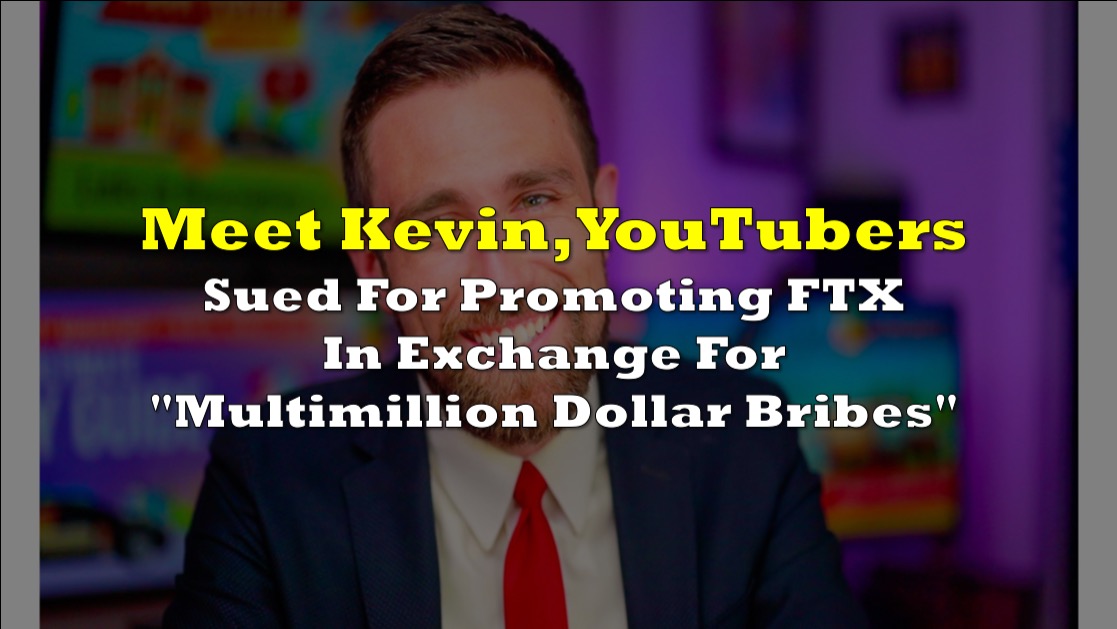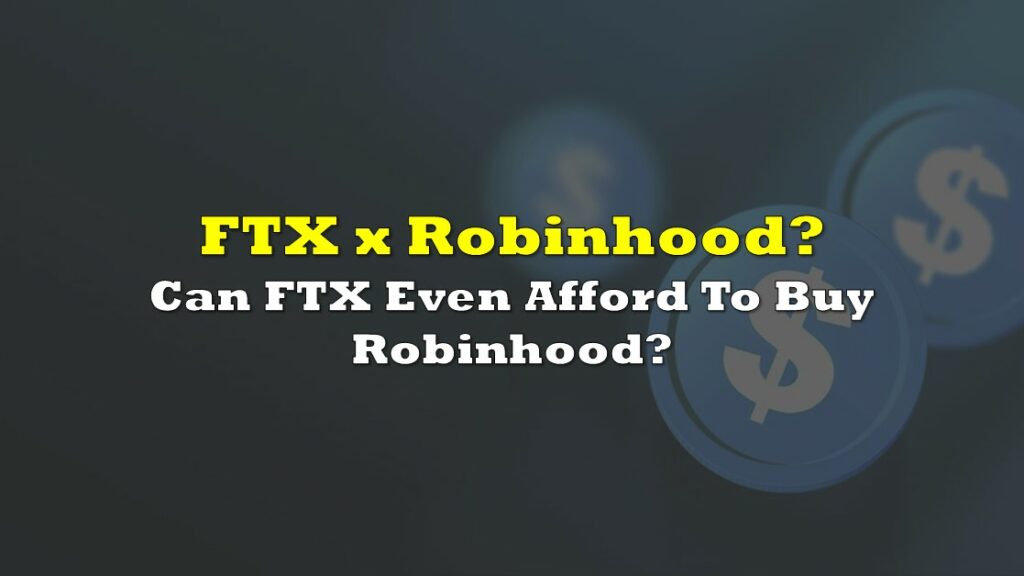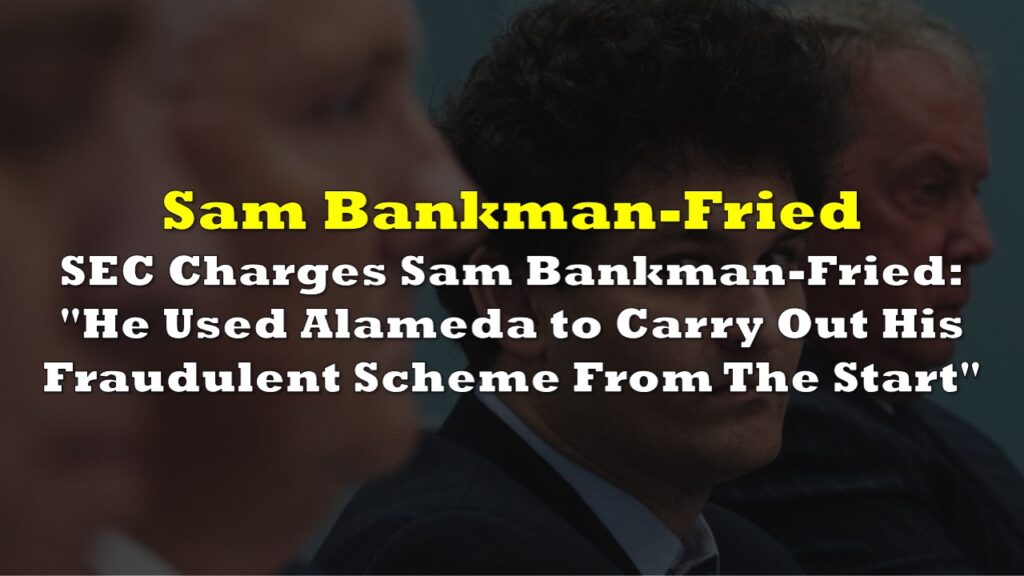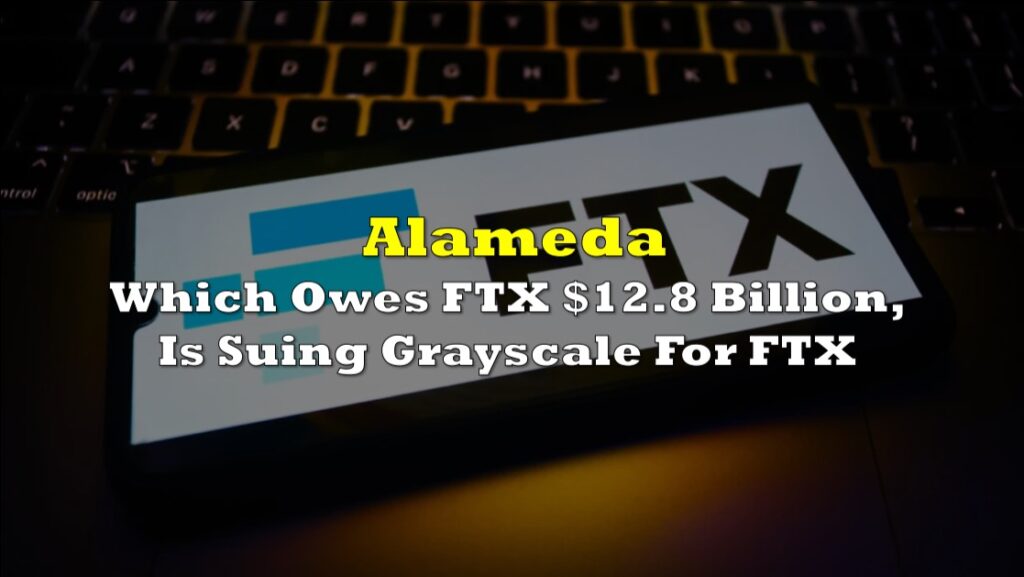A class action lawsuit was filed by clients of the failed crypto exchange FTX against a slew of YouTube content creators including Meet Kevin for playing “a major role in the FTX disaster.”
Kevin Paffrath, who runs the Youtube channel Meet Kevin, is named as a defendant alongside Graham Stephan, Andrei Jikh, Jaspreet Singh of the YouTube channel Minority Mindset, Brian Jung, Jeremy Lefebvre, Tom Nash, and Ben Armstrong–all of whom were paid to endorse FTX. Talent management firm Creators Agency is also being named a defendant including its founder Erika Kullberg.
“Evidence has now been uncovered that reveals influencers played a major role in the FTX disaster,” the complaint read. “In fact, FTX could not have arisen to such great heights without the massive impact of these influencers, who hyped the deceptive FTX platform for undisclosed payments ranging from tens of thousands of dollars to multimillion dollar bribes.”
In the lawsuit, Paffrath is described to have been receiving “$2,500 every time he mentioned FTX in one of his videos” but has long apologized for his role in promoting the platform.
“Yes, I used to be sponsored by FTX. I think that is a disgrace. And it’s a scar. And it sucks. If I could go back I would change it, because people got hurt because of that. I feel so terribly about that. People got hurt because of FTX and it’s a disgrace,” Paffrath said in one of his YouTube videos in November.
Fellow YouTuber Coffeezilla reportedly reached out to the defendants after the lawsuit was filed. Paffrath responded to him saying he’s willing to donate the money he earned from FTX to charity but that shouldn’t count as “taking responsibility.”
“Ultimately, I don’t think any influencer has to take responsibility for what somebody does with product advice,” Paffrath said in a video to Coffeezilla. “That responsibility should only arise if somebody actually hire somebody, like retaining an attorney.”
Lawsuit is here: https://t.co/OzOpOBQCFH
— Coffeezilla (@coffeebreak_YT) March 16, 2023
The suit is being heard by the Southern District of Florida given that the case is a class action for a sum exceeding $1 billion and it is in Miami where FTX has its domestic headquarters, where “the deceptive and failed FTX platform emanated.”
The legal action mainly accuses the defendants for promoting FTX’s yield-bearing accounts (YBAs) which the plaintiffs invested their assets in. The suit said they lost their investments “literally overnight” after FTX imploded and went bankrupt.
The case is hooking one of its legal arguments back to 2017 when the Securities and Exchange Commission warned that if “YBAs are found to be ‘securities,’ persons who promote them may be liable under state and federal regulations.” Violations will count for promoting an unregistered security or failing to properly disclose their payments and compensation.
This is the second lawsuit against celebrities or influencers that are being sued for promoting FTX. In December, NFL quarterback Tom Brady, NBA star Stephen Curry, supermodel Gisele Bundchen, and comedian Larry David were all named as defendants, alongside FTX founder Sam Bankman-Fried, in a lawsuit by investors.
This is a cut and paste job of the lawsuit against Tom Brady. Literally the same lawyers, plaintiffs, and claims.
— LegalEagle (@LegalEagle) March 16, 2023
The plaintiffs’ claims arise from how the defendants marketed and hyped FTX’s YBAs “as a type of savings account… which was guaranteed to generate returns on their significant holdings in the accounts.”
“That is the narrative that Defendants pushed in promoting the offer and sale of the YBAs, which are unregistered securities. For that, the Defendants are liable for Plaintiffs’ losses, jointly and severally and to the same extent as if they were themselves the FTX Entities,” the suit wrote.
In one argument, the plaintiffs said that applying the Howey test–a Supreme Court decision to determine if an asset is a security–on FTX’s Earn program reveals that it “is an investment contract.”
“An investment contract is present because users are clearly entrusting their funds to FTX. FTX is deploying customer assets in a discretionary manner. Therefore, the efforts of FTX are instrumental in generating the users’ yield and of course users have an expectation of profit because FTX is advertising yields of up to 8% APY,” the plaintiffs added.
In addition, they also argue that FTX’s token FTT “meets the Howey Test because the token was controlled by FTX; the company could create or destroy FTT at will,” adding that it is clear the reason for buying the token is the idea of gaining profit should the price go up.
The plaintiffs are targeting influencers who “shared financial advice and actively promoted FTX and its YBAs to their millions of followers,” adding that “this action may be one of the only avenues for any of the victims to recover any of their damages,” as FTX already filed for bankruptcy and the process has no guarantee in making the customers whole.
“Though FTX paid Defendants handsomely to push its brand and encourage their followers to invest, Defendants did not disclose the nature and scope of their sponsorships and/or endorsement deals, payments and compensation, nor conduct adequate (if any) due diligence,” said the plaintiffs.
Regulators have already sued Bankman-Fried for the crypto exchange’s collapse and a trial is set for October. While the founder has pled not guilty, his cohorts–Alameda CEO Caroline Ellison, former FTX CTO Zixiao (Gary) Wang, and former FTX’s director of engineering Nishad Singh–have all pled guilty to charges and are working with authorities to build the case.
The lawsuit is charging the defendants with a count of violating the Florida Securities and Investor Protection Act, a count of violating the Florida Deceptive and Unfair Trade Practices Act, a count of civil conspiracy, and a count of declamatory judgment for defendants under Florida Statutes.
Information for this briefing was found via the sources mentioned. The author has no securities or affiliations related to this organization. Not a recommendation to buy or sell. Always do additional research and consult a professional before purchasing a security. The author holds no licenses.









